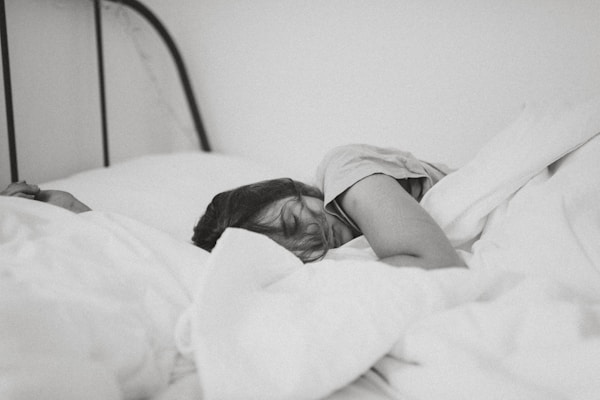There’s nothing quite like a good night’s sleep. We all know that getting enough shut-eye is essential for our mental and physical health, but it can be hard to achieve when our bedrooms are cluttered or uncomfortable.
Relax in the tub.

One of the best ways to get a good night’s sleep is to take a bath before bed. Soaking in a warm bath can help relax the body and mind, making it easier to fall asleep. If you don’t currently have a calming space to soak, consider whether a tub replacement is right for you. In the grand scheme of things, it’s a small price to pay for better sleep! A quality tub replacement can help you create a more peaceful environment for bathing and relaxing. Plus, they often come with features like whirlpool jets and heated seats, which can make your experience even more luxurious.
Try melatonin supplements.
Another way to get a better night’s sleep is to try melatonin gummies. Melatonin is a hormone that helps regulate sleep-wake cycles. Taking melatonin before bed can help improve sleep quality and duration. It’s best to start with a low dose of melatonin and increase it gradually if needed. Taking too much can cause drowsiness, so it’s important to read the label and follow the instructions. Melatonin is also available in topical form, which can be applied to the skin. If you’re interested in trying melatonin, speak to your doctor to find out if it’s a good option for you.
Create a bedtime routine.
Creating a bedtime routine can be very helpful in promoting a good night’s sleep. This could include reading, meditating, or using calming aromatherapy oils. Taking some time to relax before bed can help clear your mind and prepare you for sleep. It’s also important to avoid watching television or using electronic devices in the hours leading up to bedtime. These activities can stimulate the brain and make it more difficult to fall asleep.
Set the scene for sleep.

A dark and cool environment is key for getting a good night’s sleep. According to the National Sleep Foundation, people sleep better in a cool room, between 60 and 67 degrees Fahrenheit. Ideally, the bedroom should be dark, without any electronics or bright lights. Television and other electronics screens emit blue light, which can interfere with the body’s natural sleep rhythm.
Spend more time on exercise.
There are plenty of reasons to get regular exercise, and improving sleep quality is one of them. Exercise releases endorphins and other hormones that help to improve mood and promote relaxation. It also helps to tire the body out, making it easier to fall asleep and stay asleep throughout the night. Anything that gets you moving is good for your sleep health. Just be sure to avoid doing strenuous exercise within a few hours of bedtime, as it can actually have the opposite effect and keep you awake.
Reduce stress.
Stress can definitely keep you awake and prevent you from getting a good night’s sleep. Make sure to take some time for yourself each day to relax and de-stress. Practices like yoga and meditation can be especially helpful. You might also find it helpful to keep a journal to document your thoughts and feelings. This can help you to identify any stressors that might be contributing to your sleep problems, bringing you one step closer to fixing them.
Sleep is one of the most important things for our overall health and well-being. In fact, we need sleep to function properly—just like we need food and water. With these tips, you can slowly but surely get a better night’s sleep.
